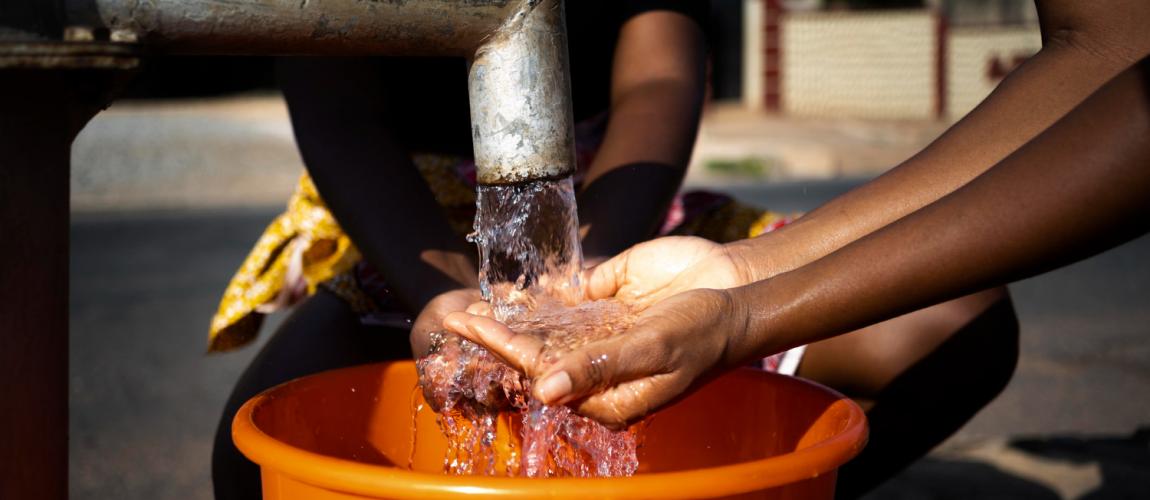Industrial Water Supply, Surat Municipal Corporation, India

Photo Credit: Image by Freepik
On this page: A case study on Industrial Water Supply, Surat Municipal Corporation, India. Find more at the Municipal Public-Private Partnership Framework - Project Summaries section for brief summaries of around 100 projects from around the world, examples of successes and challenges, as well as innovative ideas on solutions, or visit the Guidelines to Implementing Asset Recycling Transactions Section Overview and Content Outline, or download Full Version of the Report.
Project Summary: Background As the economic capital of Gujarat, Surat City was experiencing booming industrial growth, particularly in the textile and diamond industries. To meet the resulting rapid increase in water demand amidst an existing shortage, the city needed to reduce its dependence on groundwater and be more innovative in its approach to water management. Project Structure In 2014, India’s Surat Municipal Corporation (SMC) and the Asian Development Bank (ADB) jointly initiated a wastewater recycling project with a total estimated cost of INR 2.8 billion (USD 40 million). The project aimed to deliver infrastructure that could recycle sewage and generate industrialgrade water, including through the construction of new, state-of-the-art tertiary treatment plants (TTPs). The TTPs would be equipped with sand filtration, ultrafiltration, reverse osmosis, and activated carbon filter technologies and have the capacity to treat 726 million liters per day (MLD) of wastewater and distribute it for reuse by industries located in the city. Through a competitive bidding process, M/S Enviro Control Associates (I) Pvt. Ltd (with M/S Hyflux from Singapore as their technological partner) won the bid for the EPC (Engineering, Procurement, and Construction) contract. As per customary practice in SMC, the winning bidder for the EPC contract would automatically be awarded the contract to operate and maintain (O&M) the plants under a separate agreement for a period of 10 years. The plants would be handed over to SMC at the end of the concession period. The Government of India, the Government of Gujarat, and SMC contributed INR 415 million (USD 5.83 million), INR 466 million (USD 6.55 million), and INR 378 million (USD 5.3 million), respectively, for the project. SMC also provided the land to build the TTPs and was responsible for supplying the wastewater for recycling by the plants. The revenue was expected to come primarily from user charges collected from industries that purchased the recycled water. The user charge was set at about INR 19.84 (USD 0.28) per 1,000 liters of water (yearly increment on indexation base). The fee was less than the price SMC charged to industries for freshwater, which was around INR 23 (USD 0.32) per 1,000 liters of water. Revenues received were expected to cover the total annual O&M cost of INR 277 million (USD 4 million). The TTPs in the Bamroli and Dindoli areas would take in domestic sewerage water and supply the treated, recycled water primarily to textile factories in the Pandesara and Sachin industrial clusters, which house over 400 printing and dyeing units. Lessons Learned To date, SMC has been converting 57 MLD of sewerage into 40 MLD of treated water distributed to industries in Pandesara. The TTPs output capacity is expected to expand to 115 MLD by March 2019. Total income received from the sale of industrial-grade water through November 2017 was INR 747 million (or USD 10.6 million). SMC is also planning to extend the project’s scope by supplying recycled water to other industrial clusters such as Hazira, which is located outside the city. The project was originally intended to be wholly privately financed, i.e. at no cost to the government and was procured as such in 2011. However, despite successfully awarding the project, it could not be executed and required some restructuring. Subsequently, the project was structured using two contracts, one for EPC and another for O&M, and retendered in 2017. Under this arrangement, the EPC portion would be paid in full by the government, while the ensuing costs of O&M would be recovered from the revenue generated by the project. The project highlights how developing and preparing a good PPP project can take time. In this case, following the first unsuccessful effort to tender and deliver the project, the government recognized that it needed to be restructured in order to be viable over the long term. In addition, he project’s financial sustainability depended on SMC’s ability to secure demand for the recycled water from the Pandesara industrial estate, including by agreeing to fix the user charge below what it charged for freshwater. Ultimately, the project’s O&M is self-sustaining, in terms of the cost and revenue received. It has allowed SMC to reduce the strain on water resources in the city, while limiting the public fiscal burden of the project. The project is now considered to be a leading example of successful wastewater treatment projects in India.1 Footnote 1: Case source(s): https://www.thehindu. com/news/national/ other-states/inmanaging- watersurat- takes-lead/ article24962211.ece Accessed May 18, 2019. http://www.cips. org.in/documents/ VC/2014/4th_Sept/TTP_ Surat_040914.pdf Accessed May 18, 2019. https://smartnet.niua. org/sites/default/files/ webform/abd_7_dindoli_ ttp_detailed_project_ report.pdf Accessed May 18, 2019. https://smartnet.niua. org/sites/default/files/ resources/bamroli_ ttp_16_11_2017.pdf Accessed May 18, 2019.
This is a new section of the PPPLRC website and is currently in draft form. Your feedback is welcome: If you would like to comment on the content of this section of the website or if you have suggestions for links or materials that could be included please contact us at ppp@worldbank.org.
To find more, visit the The Municipal Public-Private Partnership Framework - Project Summaries section, the Guidelines to Implementing Asset Recycling Transactions Section Overview and Content Outline, or download Full Version of the Report.
Updated: March 9, 2024